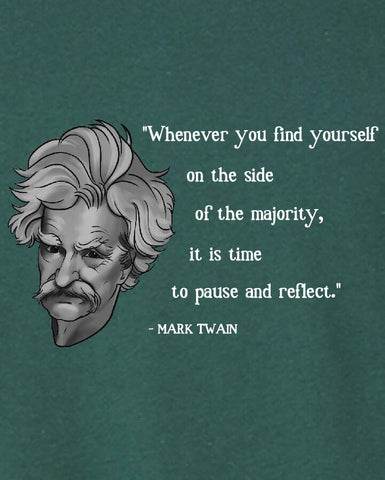In Corn-Pone Opinions, a posthumously published, autobiographical essay, the great Mark Twain addressed the timeless question of how people come to form their beliefs. As a child, Twain served as an audience of one for the private performances of a young, neighboring slave whom Twain regarded, at the time, as "the greatest orator in the United States." One of the skilled rhetorician's comments had a profound and lasting impact on the "Father of American Literature"; to wit:
"You tell me whar a man gits his corn pone, en I'll tell you what is 'pinions is."
Here, Twain's wise idol hits upon a most salient point. If a person relies upon another for their income or sustenance — their corn pone — they're incentivized to adopt opinions in alignment with their benefactor, and to refrain from disagreement, criticism, or outright opposition. For example, to strike a dischordant note at variance with one's employer could potentially jeopardize one's livelihood and well being. As Twain puts it, such a person "is not independent, and cannot afford views which might interfere with his bread and butter." A few notable exceptions exist, of course, but their rarity simply proves the rule.
Although Twain's friend expressed a core truth about human nature, conformist influences extend well beyond the role of financial benefactors. For instance, take a frank and candid look at your own behavior. When confronted with an opinion or idea with which you disagree, is your initial reflex to defend your existing beliefs on the subject, or do you respond by coolly evaluating the evidence and honestly entertaining the possibility that you may well be mistaken? Many of us like to think of ourselves as open-minded, rational observers, but the reality is often something quite different.
If our initial impulse when responding to a disagreeable assertion is to reflexively defend our existing belief, why is this the case? We'll pursue this question in our next post, but in the meantime, have a look at what the brilliant Mark Twain had to say on the subject of conformity by clicking here.
Mark Twain on the Majority



